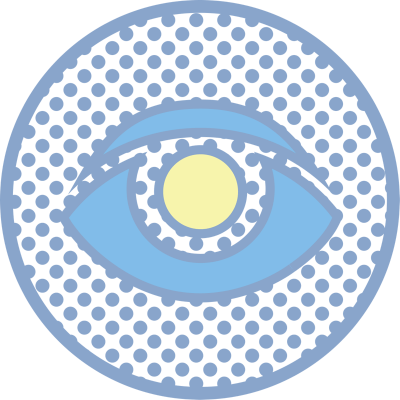Seeing the World Through a Blur? Central Serous Retinopathy Might Be the Reason
Your vision is precious—it’s how you navigate the world, absorb information, and connect with loved ones. But imagine waking up to a blurry or distorted central vision, like looking through a foggy glass. If this sounds familiar, you may be dealing with Central Serous Retinopathy (CSR), a common but often misunderstood eye condition.
Let’s explore everything about CSR, from its causes and symptoms to the advanced treatments that can help restore your vision. Understanding the condition is the first step toward protecting your sight.
What Is Central Serous Retinopathy (CSR)?
Central Serous Retinopathy, also known as Central Serous Chorioretinopathy, occurs when fluid builds up beneath the retina, causing visual distortion. The retina is the light-sensitive layer at the back of your eye that converts images into signals for your brain. When fluid accumulates under it, it leads to a detachment of the retina, resulting in blurred or distorted vision.
CSR primarily affects the macula—the central part of the retina responsible for sharp, detailed vision. It is more common in men between the ages of 20 and 50, although women and older adults can also experience it.

Causes of Central Serous Retinopathy
Understanding the CSR eye causes can help in prevention and early detection. The exact reason for fluid leakage under the retina isn’t always clear, but several factors increase the risk of developing CSR:
-
Stress:
High stress levels trigger an overproduction of cortisol, a hormone linked to CSR.
-
Corticosteroid Use:
Prolonged use of corticosteroids, whether oral, topical, or injected, is a major risk factor.
-
High Blood Pressure:
Hypertension can damage blood vessels in the eye, contributing to fluid buildup.
-
Obstructive Sleep Apnea:
This condition can affect oxygen levels, potentially impacting retinal health.
-
Age and Gender:
Men between the ages of 20 and 50 are at a higher risk.
-
Genetics:
A family history of CSR increases the likelihood of developing the condition.
- Common Symptoms of Central Serous Retinopathy
CSR symptoms can appear suddenly or develop gradually, affecting one or both eyes. Here are the key signs to watch out for:
-
Blurred Central Vision: Difficulty seeing objects clearly in the center of your field of vision.
-
Gray or Dark Spots: You may notice areas of dim vision or gray spots.
-
Distorted Images: Straight lines may appear wavy or bent (a symptom called metamorphopsia).
-
Reduced Contrast Sensitivity: Difficulty distinguishing between similar shades or colors.
-
Light Sensitivity: Increased sensitivity to bright light.
-
Micropsia: Objects may appear smaller than they actually are.
If you experience any of these symptoms, seek an eye specialist’s advice immediately to prevent further complications.
Diagnosing CSR: How Do Eye Specialists Detect It?
To accurately diagnose eye central serous retinopathy, your ophthalmologist may perform several tests, including:
-
Dilated Eye Exam:
The specialist examines your retina using drops that dilate your pupils.
-
Optical Coherence Tomography (OCT):
This non-invasive imaging test provides detailed cross-sectional images of the retina to detect fluid buildup.
-
Fluorescein Angiography:
A dye is injected into your arm, and images are taken to highlight areas of leakage or damage.
-
Visual Acuity Test:
Determines how well you can see objects at different distances.
Treatment Options for Central Serous Retinopathy
The good news? CSR is often self-limiting, with many cases resolving on their own within a few months. However, when symptoms persist or affect daily life, various treatment options are available:
1. Observation and Lifestyle Changes
- In mild cases, your doctor may recommend monitoring the condition without immediate treatment.
- Reducing stress and discontinuing corticosteroids often lead to improvement.
2. Laser Photocoagulation
- This procedure involves using a focused laser beam to seal areas of leakage under the retina.
- Ideal for cases where fluid persists for longer than 3-6 months.
3. Photodynamic Therapy (PDT)
- PDT uses a light-sensitive drug and a laser to reduce abnormal blood vessel activity and stop fluid leakage.
- Suitable for chronic or recurrent cases.
4. Anti-VEGF Injections
- Anti-VEGF medications, typically used for macular degeneration, can help reduce fluid buildup in certain CSR cases.
5. Lifestyle Modifications
- Managing stress, controlling blood pressure, and improving sleep habits can help prevent recurrence.
Types of Central Serous Retinopathy
CSR is categorized into two main types based on its duration and severity:
- Acute CSR
Short-term condition with symptoms that resolve within 3-6 months.
Often managed through observation and minor lifestyle changes.
- Chronic CSR
Lasts longer than 6 months and may lead to permanent retinal damage if untreated.
Requires more aggressive treatment options like laser therapy or photodynamic therapy.
Managing and Preventing CSR
Preventing CSR eye disorder involves addressing the underlying risk factors and adopting healthy habits:
-
Manage Stress:
Regular physical activity, meditation, and relaxation techniques such as yoga or deep breathing exercises can help reduce stress levels, which is a major trigger for CSR.
-
Limit Corticosteroid Use:
Consult your doctor before taking or discontinuing corticosteroids. If you rely on these medications, discuss possible alternatives or dose adjustments.
-
Control Blood Pressure:
Maintain a healthy diet rich in potassium (bananas, spinach), magnesium (nuts, seeds), and omega-3 fatty acids (salmon, chia seeds) to support vascular health and reduce blood pressure.
-
Eye-Healthy Foods:
Include foods rich in antioxidants, such as berries, oranges, and leafy greens, which help reduce oxidative stress in the eyes. Carrots, known for their high vitamin A content, can also boost overall eye health.
-
Routine Eye Exams:
Regular check-ups can catch the condition early and prevent complications. Follow up with your ophthalmologist if you have any recurring symptoms or risk factors.
By integrating these practical measures into your lifestyle, you can manage and potentially prevent the onset or recurrence of CSR.
Frequently Asked Questions (FAQs) about Central Serous Retinopathy
Is CSR a serious condition?
CSR can be serious if left untreated, especially in chronic cases where permanent damage to the retina is possible. Early diagnosis and treatment are key to preventing long-term complications.
Can CSR affect both eyes?
Yes, CSR can occur in one or both eyes, although it is more common in one eye initially.
Can CSR go away on its own?
Yes, in many cases, acute CSR resolves without treatment within 3-6 months. However, chronic cases may require medical intervention.
Are there any long-term effects of CSR?
Chronic or untreated CSR can lead to permanent vision problems, including scarring of the retina and reduced central vision.
How can I prevent CSR from recurring?
Managing stress, controlling blood pressure, and limiting corticosteroid use are effective preventive measures. Regular follow-ups with an eye specialist are also crucial.
Can lifestyle changes and diet help manage CSR?
Yes, adopting a healthier lifestyle can significantly aid in managing CSR. Reducing stress through yoga, meditation, and regular exercise is beneficial. Consuming a balanced diet rich in omega-3 fatty acids (found in salmon and flaxseeds), antioxidants (in berries and leafy greens), and foods high in vitamin A (like carrots) can promote better eye health and reduce the risk of recurrence.
Protect Your Vision, Act Early
Central Serous Retinopathy can be an alarming condition, but with early detection and appropriate treatment, most individuals recover their vision without long-term damage. Don’t ignore the signs—if you experience symptoms like blurred or distorted vision, seek expert care immediately.
At Dr Agarwals Eye Hospital, our experienced ophthalmologists provide personalized treatments to restore your vision and protect your eye health. Schedule your consultation today and take the first step toward clear, healthy vision.

Do not ignore eye trouble!
Now you can reach our senior doctors by booking an online video consultation or a hospital appointment
Book an appointment now